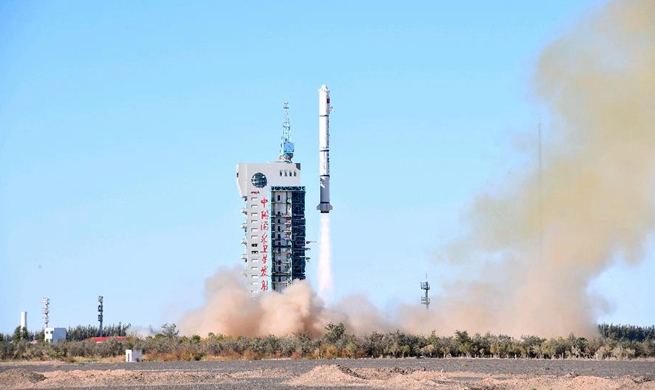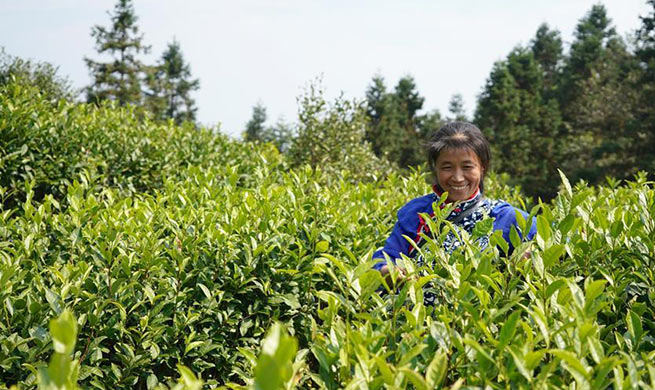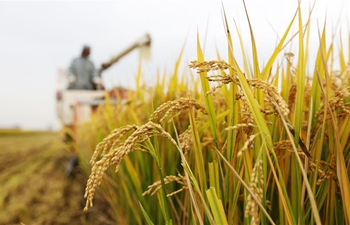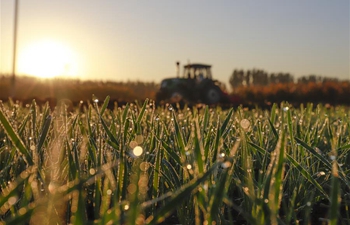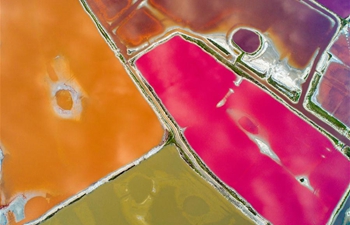NAIROBI, Oct. 8 (Xinhua) -- The World Bank and Kenya Agricultural and Livestock Research Organization (KALRO) on Monday launched a pilot agricultural observatory platform to enhance access to high-resolution geospatial agro-meteorology data.
Ladisy Chengula, the World Bank's lead agricultural economist, said the platform will help relay information on when drought and flooding is likely to occur in the country.
"The information will then be availed to scientists and policy-makers to help save farmers from making losses," Chengula said during the launch of the platform in Nairobi.
The 100 million U.S. dollar pilot platform will help Kenyan officials predict when the rains or drought is likely to happen and hence inform farmers on time, he said.
He said the platform will also help Kenya in accessing information on weather trends from the neighboring countries.
After Kenya, Chengula said, the platform will be launched in Ethiopia and the Common Market for Eastern and Southern Africa (COMESA) countries respectively.
"The platform will help improve farmers, agro-pastoralists, pastoralists and fish-farmers access to timely and appropriate information for increasing agricultural productivity and building resilience to climate change risks," Chengula said.
KALRO Director General Eliud Kireger said 35 staff members are currently undergoing training on predictive, analytics and integration into agriculture.
Erratic rainfall, diseases, floods, conflict, animal theft, drought and price volatility are threats to Kenya's agriculture and livestock sectors, Kireger said.
"The pilot will help support decision-making in agriculture since the sector has been volatile with growth rates dipping into negative," said Kireger.
He noted that with the adverse climatic conditions that affect agriculture, there is need to derive intelligence and insights from predictive data analytics.
Kireger said the sector has faced challenges such as lack of accurate, timely and reliable weather data, its integration to agricultural research data and interpretation to support effective decision-making.
"The platform will aggregate field and farm level data into mapping information that provide insight in addressing where it rained, where crops failed and how many people were impacted," said Kireger.
KALRO Information, Communication and Technology Manager Boniface Akuku said the platform will be powered by new technology.
He said that KALRO is investing heavily on ICT, big data and mobile applications to enable farmers receive information quickly and with ease. Enditem










